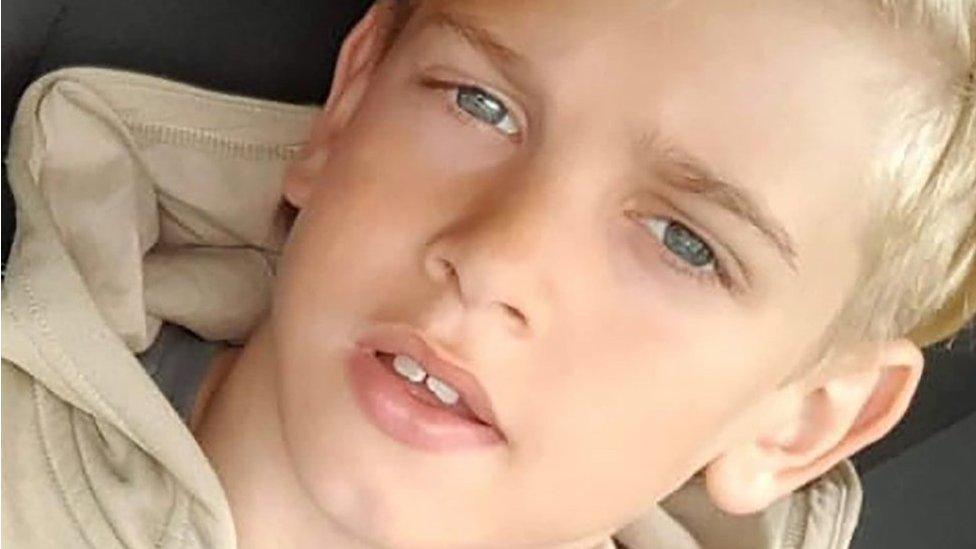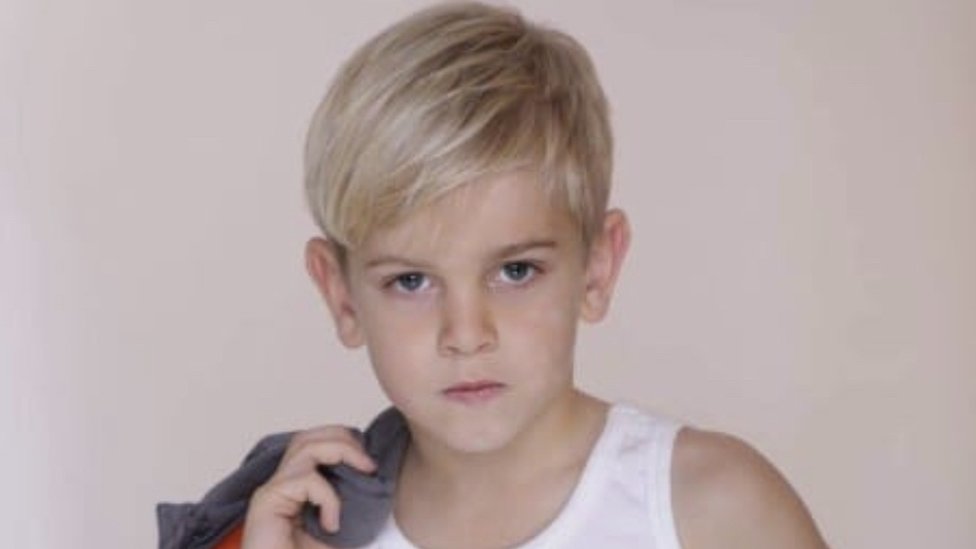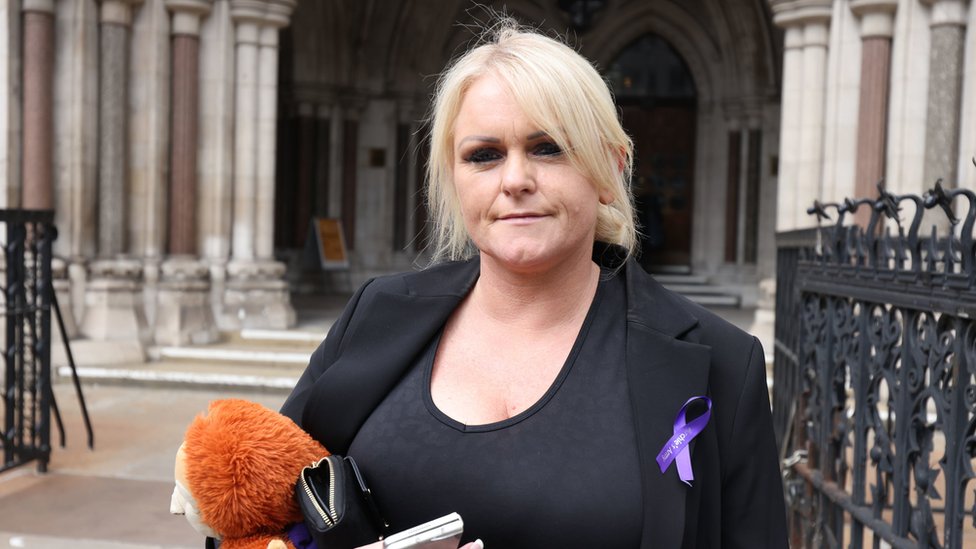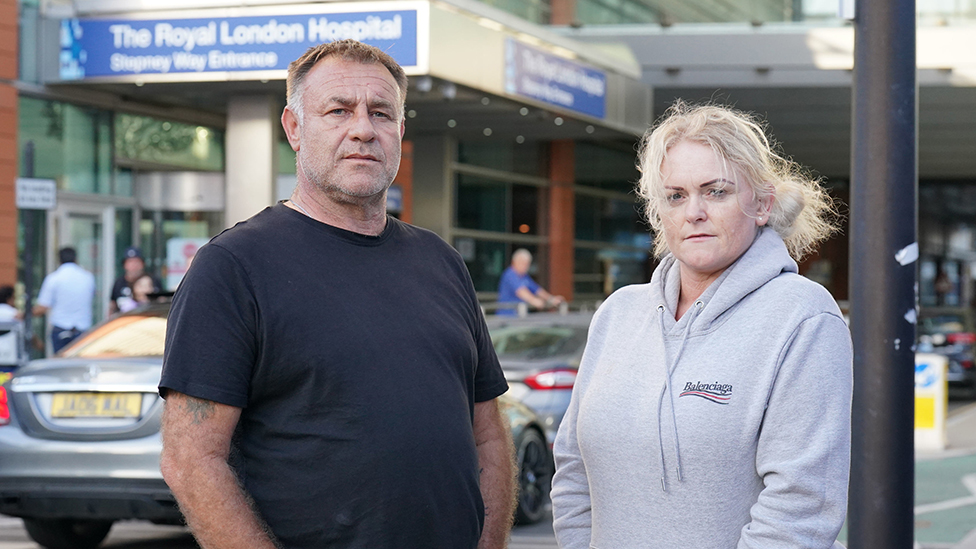Archie Battersbee: Mother tells of death threats and online abuse
- Published
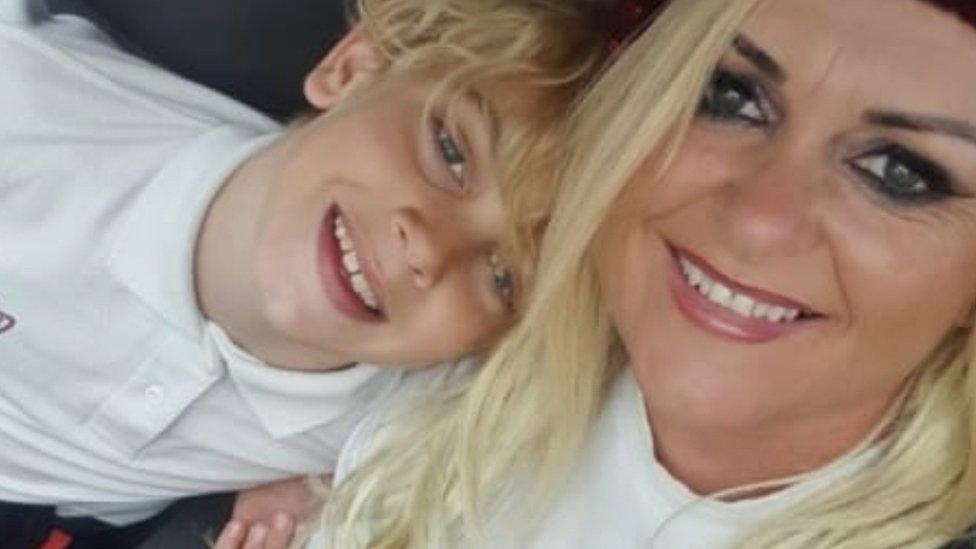
Archie's mother, Hollie Dance, says she has been subjected to "vile" online abuse
The mother of Archie Battersbee says she has faced death threats and "severe trolling" online.
Archie, 12, died when his life support was withdrawn after his parents lost a legal battle with a hospital trust treating him about his care.
Hollie Dance, from Southend, Essex, said a noose had also been left on her son's grave.
She said she had been subjected to "vile comments and accusations", mainly through social media.
In April, Ms Dance found Archie unconscious at home - she believed he may have been taking part in an online challenge when he was injured.
Doctors at the Royal London Hospital in east London, run by Barts NHS Health Trust, believed it was "highly likely" he was brain stem dead.
Archie died on 6 August when life support was withdrawn after a number of courts agreed with doctors that stopping treatment was in Archie's best interest.
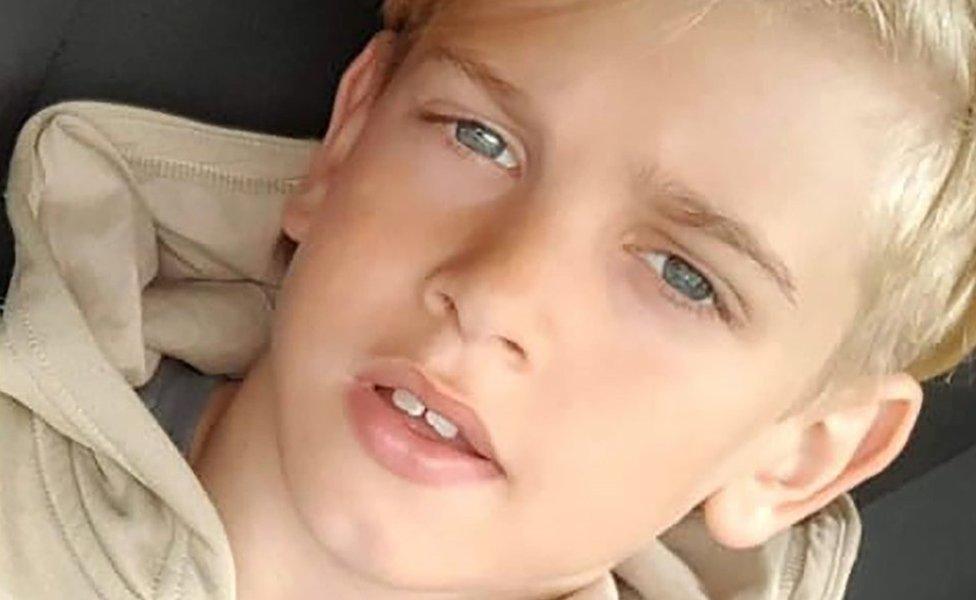
Archie suffered brain damage in an incident at home on 7 April
Ms Dance told the PA News agency the trolling she had received was "absolutely awful".
She said: "The police have been investigating since mid-May so we're hoping a case is building now.
"They are on it. We've got over 10,000 screenshots of some of the vile comments and accusations."
She said much of the abuse was on social media, but there was also a "noose put on his grave".
"I've had two death threats," Ms Dance said. "My son's been threatened. It's just constant, every single day."
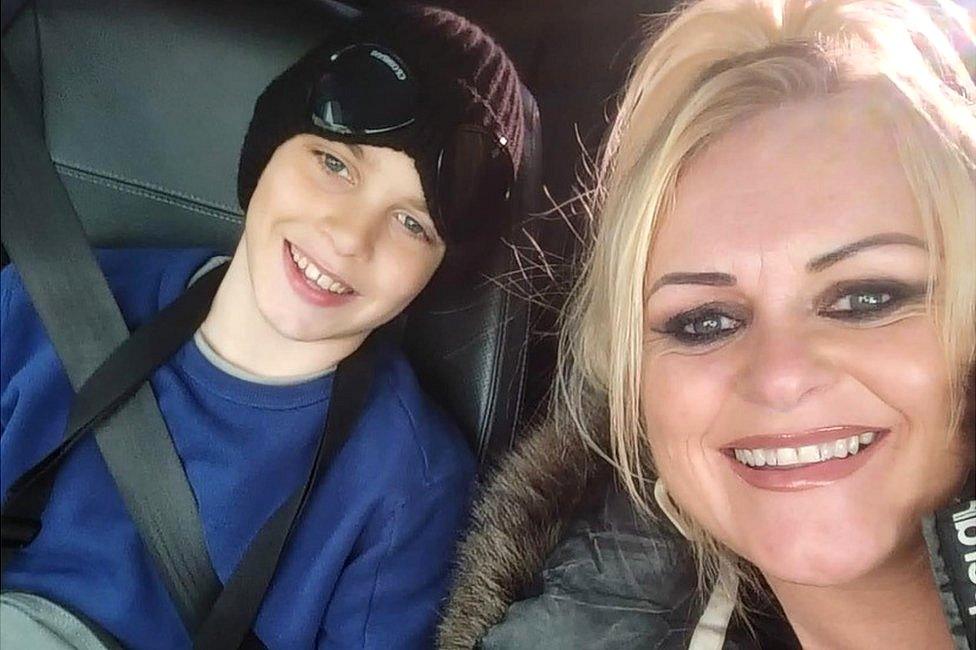
Ms Dance said a noose had also been left on her son's grave
She said that people had also complained to Southend Borough Council after she was at his graveside on her birthday on Friday, with a gazebo up.
Ms Dance said the gazebo was just to protect people from forecasted rain and that she had asked permission from the families of other people buried near Archie.
"It's like I'm not allowed to grieve, whatever I do," she said.
Martin Terry, cabinet member for public protection for Southend Borough Council, said: "We understand that people will always grieve in different ways when they lose a loved one.
"We would remind all families with loved ones in the cemetery of the conditions of when they purchased the plot, and to remind them that the cemetery is a public space that many people use to visit their loved ones, and as such we want to ensure that it remains respectful for all."
Essex Police have been approached for comment.

Find BBC News: East of England on Facebook, external, Instagram, external and Twitter, external. If you have a story suggestion email eastofenglandnews@bbc.co.uk, external
- Published13 September 2022
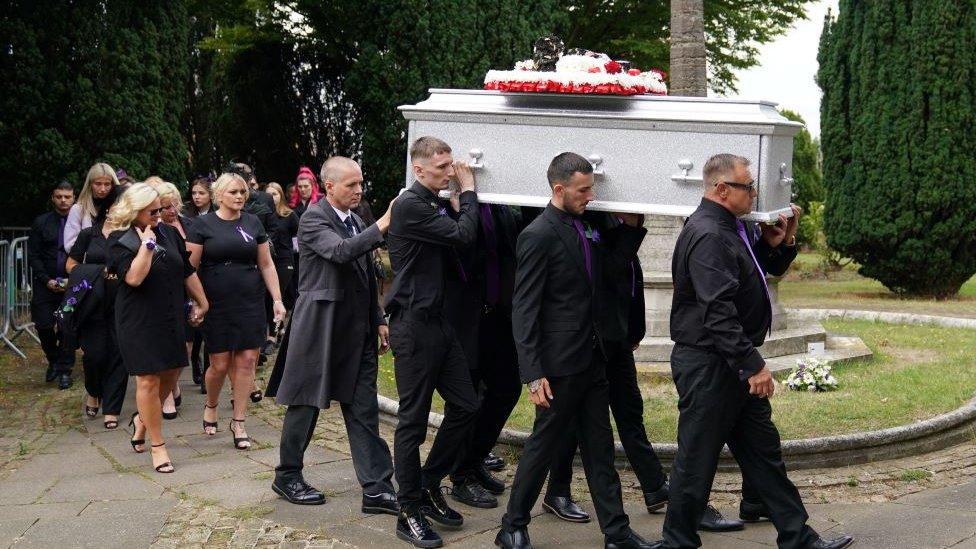
- Published6 August 2022
